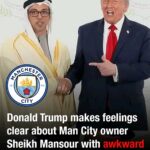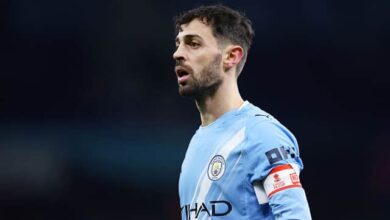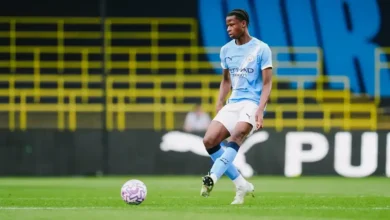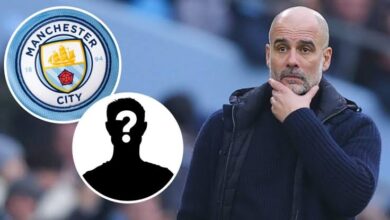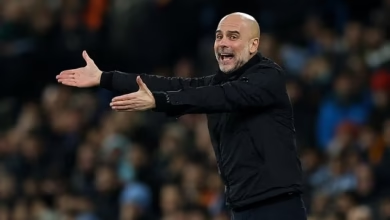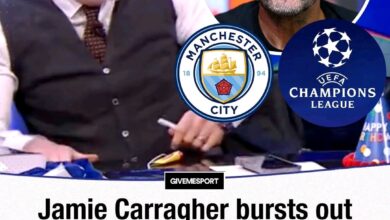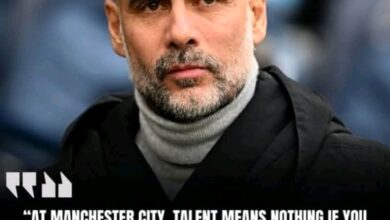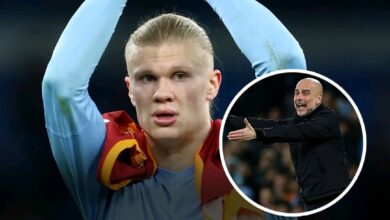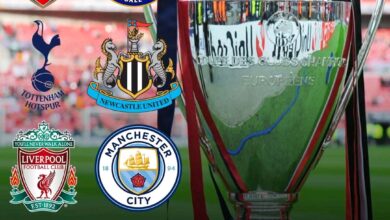Manchester City’s sheer power within football cannot be underestimated after President Trump’s latest comments
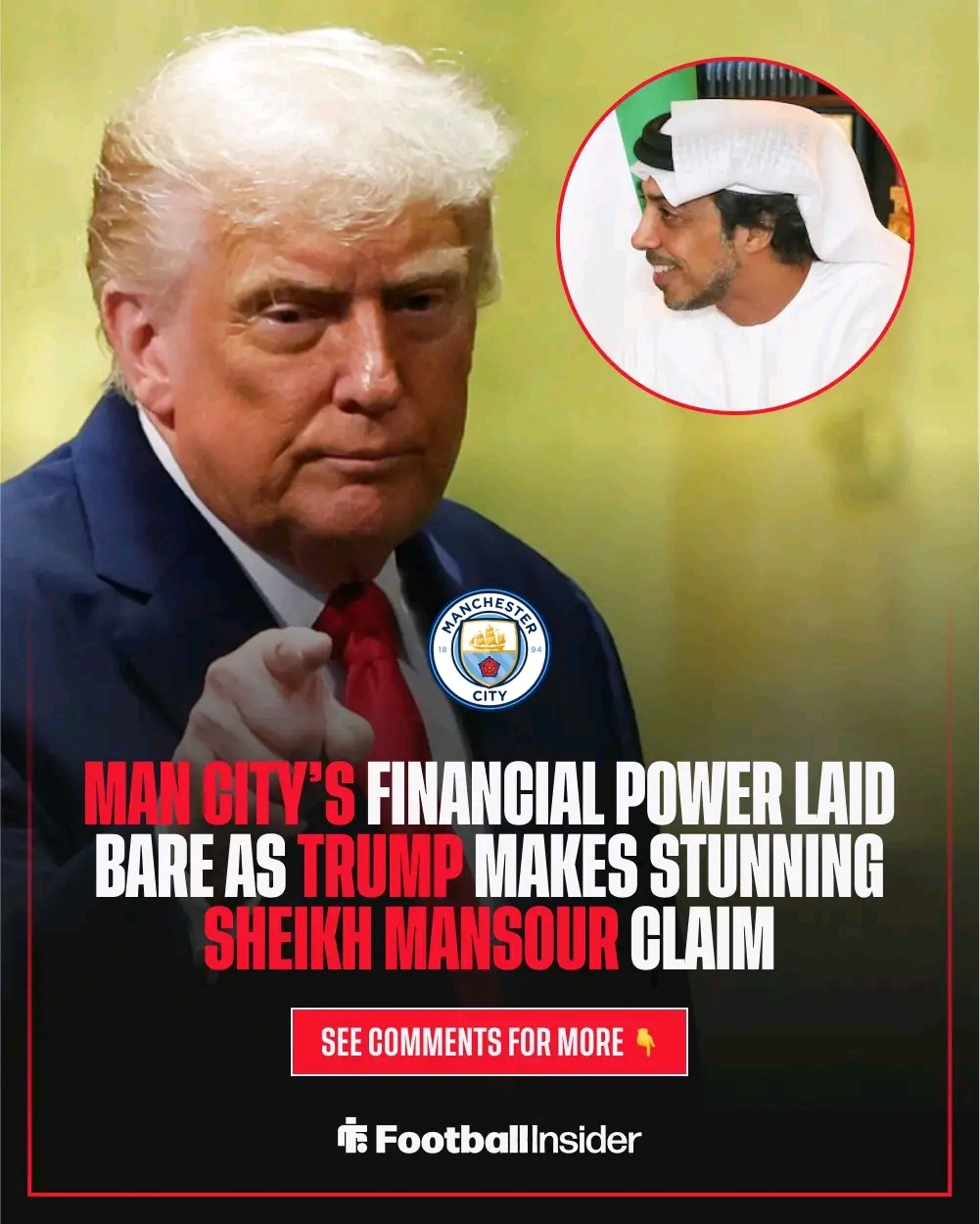
When the cameras flashed and the crowd of diplomats and journalists gathered inside the vast conference hall in Sharm El-Sheikh, something unexpected happened. Donald Trump, the former President of the United States, turned toward Sheikh Mansour bin Zayed Al Nahyan, smiled, and said words that echoed across both political and football worlds. “A lot of cash, unlimited cash! And he’s a good man, too,” Trump declared, pointing at the Manchester City owner with that familiar gesture of showmanship he has used a thousand times before. The words spread across the internet like wildfire, reminding everyone once again of the unimaginable wealth behind Manchester City’s modern empire.
For many football fans, Sheikh Mansour is a name that carries almost mythical weight. Since 2008, when the Abu Dhabi United Group purchased Manchester City for about £200 million, he has transformed the club into a global powerhouse. Back then, City were just another Premier League team — passionate fans, occasional glory, but mostly living in the shadow of their red neighbors from Old Trafford. Seventeen years later, the picture is completely different. Under Mansour’s ownership, Manchester City are not just champions of England but one of the most valuable sports institutions on the planet, worth more than £4 billion according to recent valuations.
Trump’s remark was not just political humor. It was a public acknowledgment of something the football world already knew — that Sheikh Mansour’s wealth has rewritten the rules of modern football. When he shook hands with Trump at the Gaza peace summit, it was more than a diplomatic moment. It was a symbolic meeting between two worlds — politics and football finance — each defined by power, ambition, and influence.
The room was full of tension that day, with global leaders discussing serious matters about peace and conflict, but the cameras couldn’t resist focusing on the exchange between the American billionaire and the Emirati royal. Trump’s grin, Mansour’s calm smile, and that simple line — “unlimited cash” — reminded everyone how money, influence, and football had become intertwined in today’s world.
Since taking over Manchester City in 2008, Sheikh Mansour’s investment has gone beyond what anyone could have imagined. Reports estimate that he has poured around £2.5 billion into the club over the years, shaping one of the greatest football dynasties ever seen. It’s not just about spending money; it’s about building an empire that stretches across continents. The creation of the City Football Group (CFG) in 2013 was the next step in that plan — an idea that sounded ambitious at the time but now stands as one of the most powerful multi-club networks in football history.
From New York to Melbourne, from Mumbai to Montevideo, Mansour’s vision was clear: build a global football family connected by the same philosophy, the same playing style, and the same sky-blue dream. The CFG now owns or controls twelve clubs, including New York City FC, Melbourne City, Yokohama F. Marinos, Girona, Troyes, Palermo, Bahia, and even a club in China named Sichuan Jiuniu. For Mansour, football was never just a local investment — it was a global strategy. Each club became a branch of the same tree, feeding the roots that grow from Manchester.
While these projects expanded worldwide, Manchester City remained the crown jewel. Under Pep Guardiola, Mansour’s club achieved what many thought was impossible — dominance with style. City became the team every rival feared and admired. With their fluid football, tactical genius, and endless hunger, they redefined what success looked like. And behind all that was the steady hand of Sheikh Mansour and the endless stream of financial power that Trump would later call “unlimited cash.”
Sheikh Mansour’s personal fortune is estimated at around £17 billion, but his family’s combined wealth is said to exceed £200 billion. Those are numbers that most people can’t even imagine. Yet, despite his wealth, Mansour rarely appears in public or speaks to the media. His influence works quietly but powerfully. When Trump called him “a good man” during that handshake, it was both a compliment and a recognition of the quiet strength that has turned City into a football kingdom.
In football terms, the results speak louder than any statement. Since Mansour’s arrival, Manchester City have won almost everything — multiple Premier League titles, FA Cups, League Cups, and even the long-awaited Champions League. The club has gone from a middle-table side to one that dominates world football with unmatched consistency. The numbers behind it are staggering. City spent more than £180 million in the most recent transfer window alone, and the total investment under Mansour has now crossed £2.5 billion.
But what makes the story of Sheikh Mansour’s City even more fascinating is how they’ve managed to blend huge spending with incredible structure. The financial backing is immense, but the management model is even more impressive. The City Football Group is not just a football ownership structure; it’s a business ecosystem designed to make success sustainable. Each club in the group acts as both a testing ground and a support network for the others. Young players move across clubs, coaches share ideas, and marketing teams build a global fanbase that stretches from Manchester to Mumbai.
In 2019, American private equity firm Silver Lake entered the picture, buying a 10% stake in CFG in a deal worth about £390 million. The investment gave the group even more global credibility, showing that this was not just a football dream — it was a serious business empire. Silver Lake later increased its stake to more than 18%, but that number changed again last year when Mansour’s Newton Investment and Development injected £420 million back into the group. As a result, Mansour now controls over 80% of the entire City Football Group. The rest belongs to investors, but the power and direction still rest firmly in Abu Dhabi’s hands.
Manchester City’s financial machine has become the envy of the Premier League. In their latest accounts for the 2023–24 season, the club reported a record turnover of £715 million — the highest in the league. To put that into perspective, it’s more revenue than most top European clubs generate in a year, and it represents the majority of CFG’s total earnings of £933 million. These numbers highlight just how efficient the system has become. It’s no longer just about spending money — it’s about generating it in ways that sustain the success on and off the pitch.
When Donald Trump made his now-famous remark about Sheikh Mansour, fans around the world reacted in different ways. Some laughed, others nodded, but everyone agreed on one thing — it was true. Manchester City’s financial power has no rival. Every transfer window, every new stadium project, every global partnership reminds the world that this is not just a football club; it’s a symbol of how wealth and vision can reshape a sport.
But beyond the jokes and online reactions, there’s a deeper story about how money changed the football landscape forever. When Mansour bought City in 2008, the club’s total value was a fraction of what it is today. Now, just seventeen years later, City are valued at over £4 billion, and that figure keeps rising. The investment has not only turned City into champions but also turned them into one of the most profitable sports entities in the world.
Pep Guardiola, who joined in 2016, has been the architect of City’s football revolution, but none of it would have been possible without the foundation laid by Mansour. From the new training complex at the Etihad Campus to the global scouting network, everything about City screams ambition and structure. They’ve become the perfect mix of football and business excellence — something that Trump himself would admire deeply.
What’s more fascinating is how Mansour has managed to stay out of controversy despite the enormous scrutiny that follows him. He rarely gives interviews, rarely makes appearances, and never involves himself directly in club management decisions. He trusts his executives — Ferran Soriano, Txiki Begiristain, and the rest of the leadership team — to run the day-to-day operations. His role is to provide the vision and the funding, and he does both with unmatched precision.
For Manchester City fans, Sheikh Mansour is more than an owner — he’s the man who gave them a dream. For years, they watched rivals like Manchester United, Liverpool, and Arsenal dominate English football. Now, under Mansour’s reign, they’ve flipped the story. City have become the team everyone wants to beat, the benchmark of modern football success.
The meeting between Trump and Mansour may have lasted only a few moments, but it represented decades of ambition and progress. When Trump said, “A lot of cash, unlimited cash,” he was speaking to something bigger than money. He was speaking to the transformation of a football club that went from almost being forgotten to being unstoppable.
Even critics who question City’s financial dominance cannot deny the results. The trophies, the infrastructure, and the global influence are undeniable. City have set new standards in how a club should be managed. From the grassroots level to commercial partnerships, everything functions like clockwork.
Mansour’s approach has also reshaped football’s economic future. Other clubs have tried to follow the model, but few have succeeded. PSG’s Qatari ownership came close, but City’s structure — with its multiple clubs and strong business network — remains unmatched. It’s a football revolution disguised as corporate genius.
And yet, despite all the numbers, power, and fame, there’s still something understated about Sheikh Mansour. He’s not loud, not flashy, not the kind of owner who chases cameras. He lets the success speak for itself. The handshake with Trump reminded the world of his presence — the quiet, commanding kind that doesn’t need to shout to be noticed.
When the picture of Trump and Mansour began to spread across social media, the caption “Unlimited cash” became a meme among football fans. But behind the laughter was admiration. Because while Trump’s words were meant casually, they captured the essence of Manchester City’s transformation — the story of a club reborn through the vision of one man and the power of limitless ambition.
From £200 million in 2008 to a £4 billion valuation today, from mid-table battles to European glory, Manchester City’s journey is one of modern football’s greatest stories. It’s not just about winning titles — it’s about rewriting what’s possible when money meets vision, when leadership meets belief, and when ambition meets patience.
As the summit ended and the leaders left the stage, the cameras captured one last image — Sheikh Mansour walking away calmly, his expression as composed as ever. The man who changed Manchester City forever doesn’t need applause. He already knows his impact. And somewhere far from the flashing lights, Pep Guardiola’s team continues to dominate, playing the kind of football that reflects the empire Mansour built from nothing.
Trump’s voice might have been loud, his words dramatic, but the truth behind them was undeniable. “Unlimited cash,” he said, laughing. But what he really meant was that Manchester City have built something that feels endless — an empire of money, power, and football that has no limits in sight. And as long as Sheikh Mansour remains at the top, the City dream will keep growing, spreading, and shining — brighter than ever.


